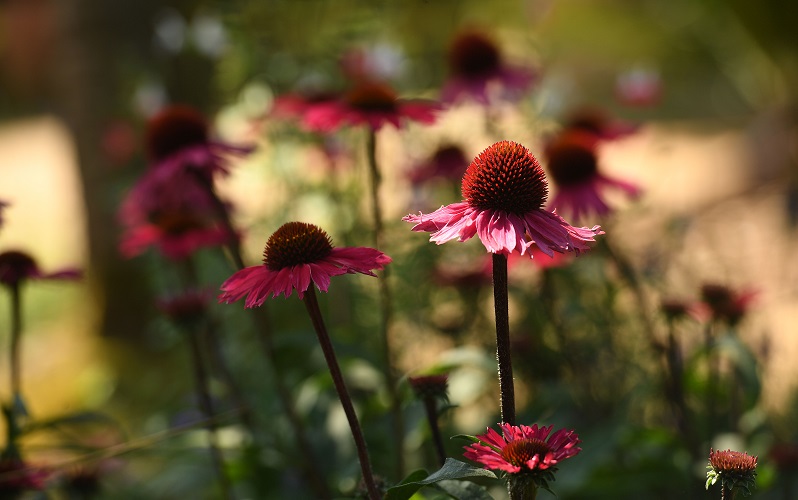
Several weeks on, the beds of fresh herbs and vegetables they planted aren’t the only things that have grown. The group has become so popular, with service users saying how much they have enjoyed the group and being outside, that the gardening club is now a firm fixture in Cygnet’s programme of activities.
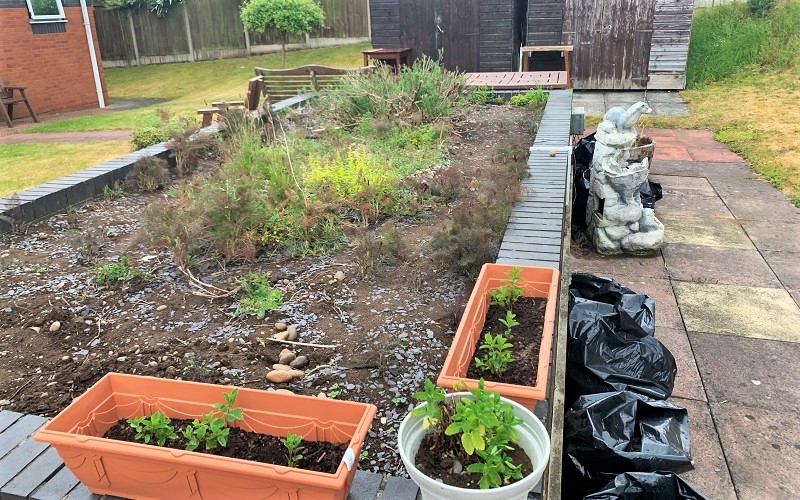
To the organisers of National Growing for Wellbeing Week (1 – 7th June), this will come as no surprise. While the current lockdown has meant that people have had much more time for their gardens, many are beginning to appreciate the joy of gardening for the first time.
Gardening has obvious benefits for physical health, but gardens are also proven to boost mental health, cognitive functioning and emotional well-being. National Growing for Wellbeing Week was set up by a gardening and wellbeing therapy organisation on the basis that growing your own produce can do wonders for our wellbeing, both physically and mentally. As well as reducing feelings of stress and anxiety, gardening also counts as a fun new skill to get you outside and connect with others.
Many people talk of the garden being a refuge and helping them restore a sense of calm and relaxation. Launching the National Garden Scheme’s Garden and Health Week last month, gardening broadcaster Rachel de Thame described how her garden was crucial during 2018 and 2019 when she went through treatment for breast cancer.
“My garden became a lifeline, it was a place of escape…but above all, it offered me a sense of promise for the future, that glimmer of optimism kept me going through treatment,” she said.
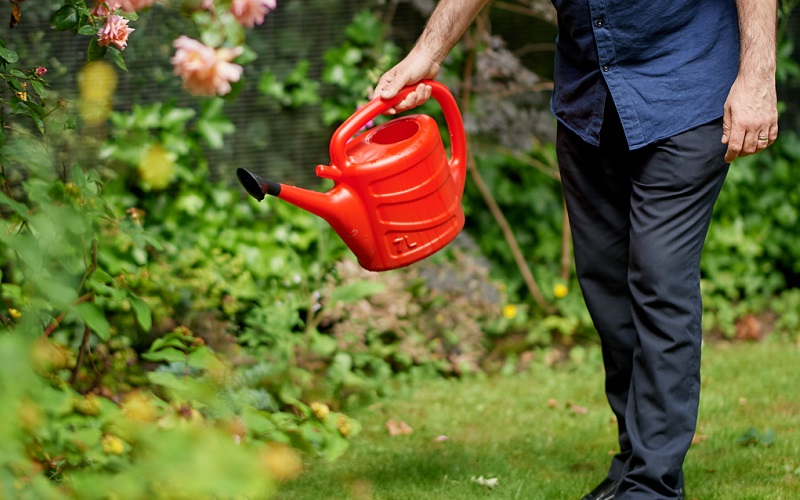
In a mental healthcare setting, the benefits of sharing gardening responsibilities with those who have disabilities and mental health challenges cannot be overestimated. An important 2011 study showed that for people recovering from stress, nurturing plants from seed to maturity evoked feelings of curiosity and a desire to follow their progress, creating positive hope for the future. And a 2016 report by Natural England highlighted that social and therapeutic horticulture, environmental conservation and care farming had similar mental health benefits that included a reduction in depression, anxiety and stress-related symptoms, and improvement in dementia-related symptoms.
During these challenging times, being able to find an escape like gardening to reduce feelings of depression are crucial. According to The Lancet this week (2 June), the psychosocial burden of COVID-19 will become increasingly evident in the coming months as the effects of social measures such as physically distancing, loneliness, death of friends or family, and job losses manifest. Huge shifts will be necessary within health systems to optimise the uptake of new and existing evidenced-based mental health innovations.
At Cygnet, a number of our hospitals have supported the mental wellbeing of service users during the lockdown by encouraging them to embrace outdoor activities like gardening. At Cygnet Sedgley House and Sedgley Lodge, staff invested in a greenhouse and supplies when service users opted to grow their vegetables as the lockdown began. Cygnet Elms Birmingham also organises gardening activities, and on sunny days the garden is a haven of positivity.
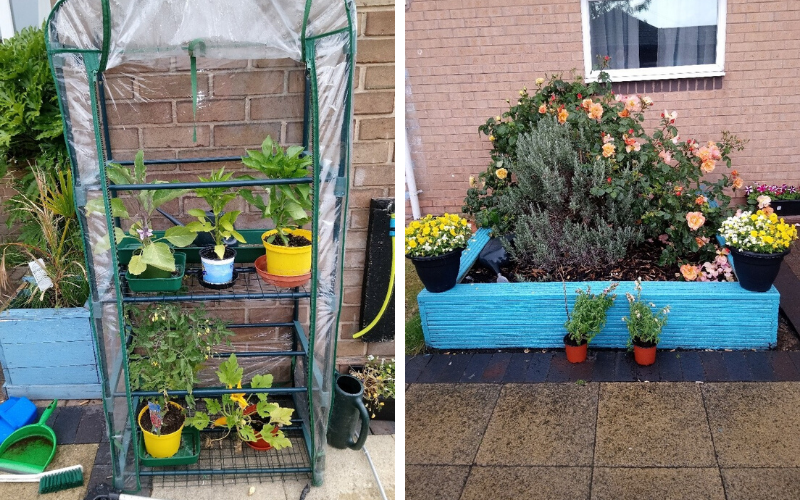
The health benefits of green spaces have been recognised since the early 19th century and Florence Nightingale was said to be a champion of outdoor spaces. After the Second World War, at the birth of the NHS, some of these gardens disappeared as hospitals were built for clinical effectiveness and land was used to house specialist units, rather than turned over to wildflowers.
In recent years, however, these gardens are starting to make a comeback, with hospitals recognising the impact they can have on the wellbeing of patients, staff and visitors. Many Cygnet hospitals have expansive grounds, with gardens factored into purpose-built units. Service users at Cygnet Hospital Bury can take advantage of a therapy garden and have access to woodland walkways down to the local reservoir.
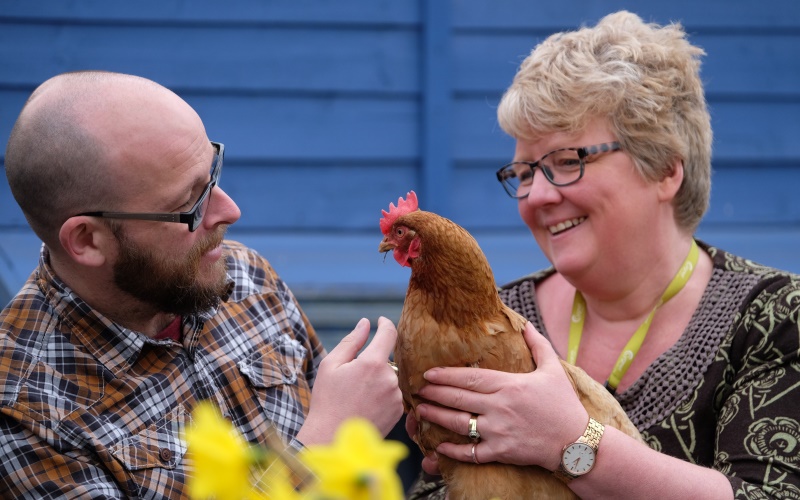
Not everyone is lucky enough to have a garden, of course, so what can you do to get involved with National Growing for Wellbeing Week?
Keen gardeners recommend starting off small by purchasing a plant pot or window box and sticking to some straightforward, year-round growers, like lettuce, peppers or tomatoes. Among the plants that flower fast – handy during the lockdown when you want to see the results quickly – are nasturtiums and sunflowers.
All you need is sun, water and a positive attitude!
Did you Know?
- Gardening is a physical activity that burns 200-500 calories an hour
- Vitamin D – gained from exposure to sunlight – increases your calcium levels, benefitting your bones and immune system.
- A 2006 study found that gardening could lower risk of dementia by 36%.
- Gardening may fight stress better than other hobbies. Participants in a study in the Netherlands completed a stressful task and were then told to read inside or garden in their allotments for 30 minutes. The gardening group reported better moods, and their blood tests showed significantly lower levels of the stress hormone cortisol.
- Numerous studies have shown that simply viewing a green space through a window can relax people and reduce their stress levels.